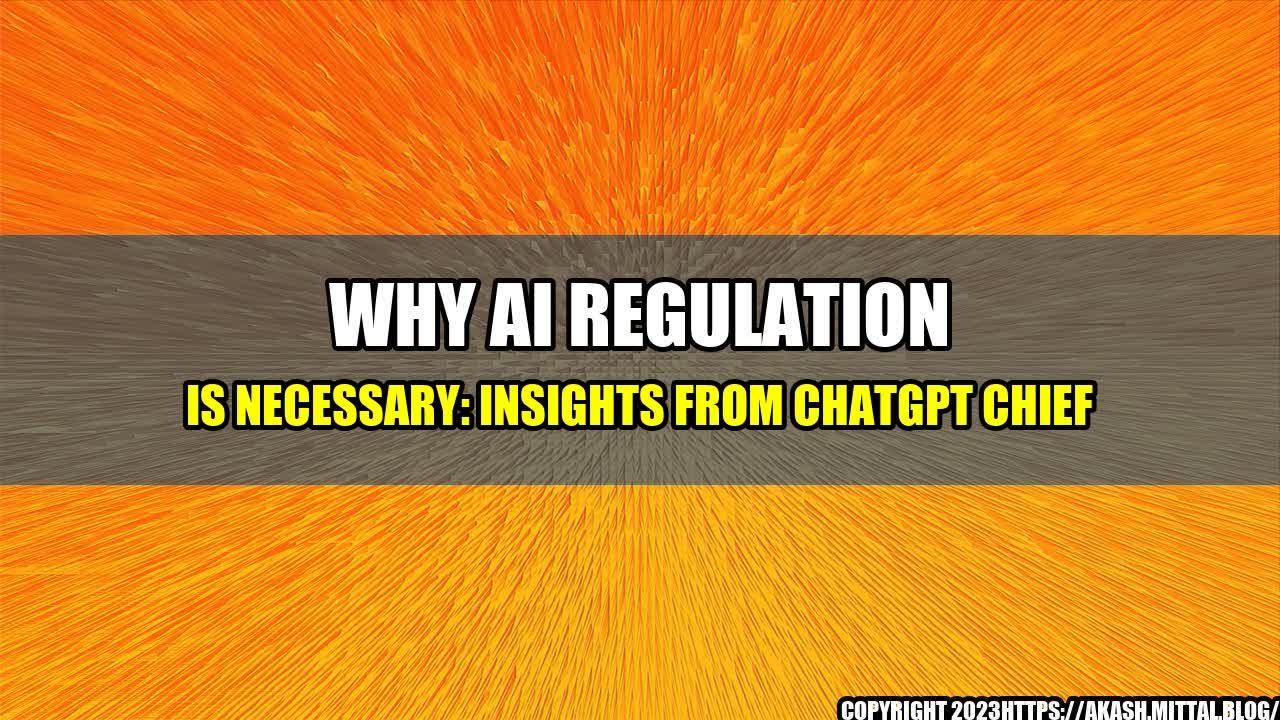The Story of a Fatal Autonomous Car Accident
In March 2023, a fatal accident occurred in downtown San Francisco when a self-driving car collided with a pedestrian on a crosswalk. The car was equipped with state-of-the-art artificial intelligence (AI) software to navigate the roads and make split-second decisions. However, it appeared that the system failed to detect the pedestrian due to a glitch. The accident sparked a heated debate on AI regulation, with some arguing that these systems need to be better regulated to avoid similar tragedies in the future.
Why AI Regulation is Necessary
While AI has made significant advances in recent years, it has also raised concerns and questions about its safety, ethics, and transparency. Here are some reasons why AI regulation is necessary:
- Safety: Autonomous systems such as self-driving cars, drones, and robots pose potential risks to human safety if they malfunction or behave in unexpected ways. For instance, an AI system that controls a medical device can cause harm if it fails to perform the intended task or makes inaccurate decisions.
- Transparency: AI algorithms are often seen as a "black box" because their decision-making processes are not always clear or understandable. This lack of transparency can lead to unintended consequences and biases, which may result in unfair or discriminatory outcomes.
- Ethics: AI systems can cause ethical dilemmas in various contexts such as privacy, security, and human rights. For instance, facial recognition technologies can potentially violate people's privacy if used without their consent or knowledge.
Examples of AI Regulation
Various countries and organizations have already implemented or proposed regulations on AI. Here are some examples:
- The European Union: The EU has proposed a comprehensive regulatory framework for AI that includes mandatory risk assessments and transparency requirements for high-risk applications such as transportation, healthcare, and public services.
- China: China has released guidelines on AI development and governance, emphasizing the need for ethical considerations and transparency in AI systems.
- The United States: While the US has yet to establish a national AI regulatory framework, some states such as California have passed laws that require transparency and oversight of autonomous systems.
The Call for Action
ChatGPT Chief, a leading AI expert, recently testified before the US Senate about the urgent need for AI regulation. Here are some key takeaways from his testimony:
- Collaboration: AI regulation requires collaboration between different stakeholders such as government agencies, industry leaders, and civil society organizations. The regulatory framework should be flexible and adaptable to new technologies and use cases.
- Transparency: AI systems should be designed to be transparent, explainable, and accountable to avoid unintended consequences and biases.
- Ethics: AI should be governed by ethical principles that prioritize human values and dignity. AI developers and users should be held responsible for the ethical implications of their actions.
Conclusion
The growth of AI has significant potential to improve various aspects of our lives, but it also poses challenges and risks. AI regulation is necessary to ensure that these systems are safe, transparent, and ethical. Collaboration and transparency should be core values in designing and implementing AI regulatory frameworks.

Curated by Team Akash.Mittal.Blog
Share on Twitter
Share on LinkedIn